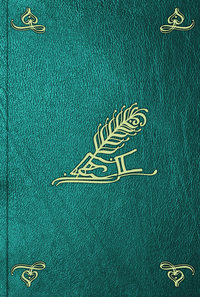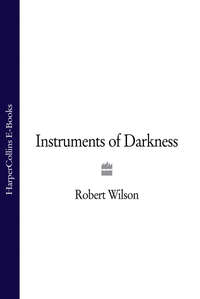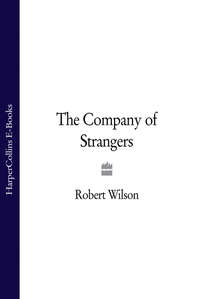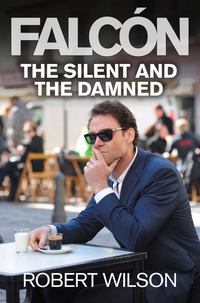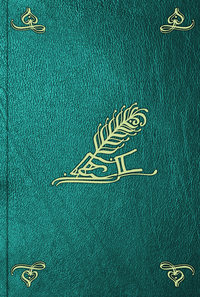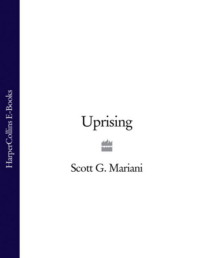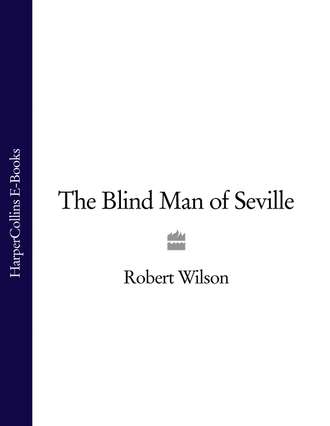
Полная версия
The Blind Man of Seville
‘You’re not being fair,’ he said, and then to change the subject: ‘I came across a photograph of Papá today … ‘
‘You need to find yourself a woman, Javier,’ she said. ‘It won’t do, you going through all the old albums.’
‘This was a shot I found in Raúl Jiménez’s study. He was in Tangier around the same time. Papá didn’t know he was being photographed.’
‘Was he doing something unforgivable?’
‘It was dated August 1958 and he was kissing a woman …’
‘Don’t tell me … she wasn’t Mamá?’
‘That’s right.’
‘And you were shocked?’
‘Yes, I was,’ he said. ‘It was Mercedes.’
‘Papá was no angel, Javier.’
‘Wasn’t Mercedes still married then?’
‘I don’t know,’ said Manuela, waving it all away with her cigarette. ‘That was Tangier in those days. Everybody was as high as a kite and fucking everybody else.’
‘Can you try and remember? You were older. I wasn’t even four years old.’
‘What does it matter?’
‘I just think it might help.’
‘With Raúl Jiménez’s murder?’
‘No, no, I don’t think so. It’s personal. I just want to sort it out, that’s all.’
‘You know, Javier,’ she said, ‘maybe you shouldn’t be living in that big house all on your own.’
‘I did try to live there with somebody else, who we can’t mention.’
‘That’s the point. Old houses are crowded and women don’t like sharing their living space unless they choose to.’
‘I like it there. I feel in the centre of things.’
‘You don’t go out into “the centre of things” though, do you? You don’t know anywhere that isn’t between Calle Bailén and the Jefatura. And the house is far too big for you.’
‘As it was for Papá?’
‘You should get yourself an apartment like mine … with air conditioning.’
‘Air conditioning?’ said Javier. ‘Yes, maybe that would help. Clear the air. Don’t the latest models have a button on the side that says “past reconditioned”?’
‘You always were a strange little boy,’ she said. ‘Maybe Papá should have let you become an artist.’
‘That would have solved everything, because I’d have been so broke I’d have had to sell the place as soon as he died.’
The rest of Manuela and Alejandro’s friends arrived and Javier drained his beer. He excused himself from dinner through a barrage of fake protest. Work, he said, over and over again, which few of them understood as they were well cushioned from the hard edges of daily toil.
At home he ate some mussels in tomato sauce, cold. Something left for him by Encarnación, who knew that he couldn’t be eating properly without a woman in the house. He drank a glass of cheap white wine and mopped the sauce up with some hard white bread. He wasn’t thinking and yet his head seemed to be full of a sense of rushing. He thought it was his mind unwinding after the day, until he realized it was more of a rewind, like a tape, a fast rewind. Inés. Divorce. Separation. ‘You have no heart.’ Moving to this house. His father dying …
He stopped it. There was an audible thump in his head. He went to bed with too much happening in his body. He slammed into a wall of sleep and had his first dream, that he could remember, for some considerable time. It was simple. He was a fish. He thought he was a big fish, but he could not see himself. He was fish; aware only of the water rushing past him and a scintilla in his eye, which he closed on, which instinct told him he should close on. He was fast. So fast that he never saw what he instinctively pursued. He just took it in and moved on. Only … after a moment he felt a tug, felt the first rip of his insides, and he burst to the surface.
Awake, he looked around himself, astonished to find that he was in bed. He pressed his abdomen. Those mussels, had they been all right?
9
Friday, 13th April 2001, Javier Falcón’s house, Calle Bailén, Seville
He was up early; the jitteriness in his stomach had gone. He spent an hour on the exercise bike, setting himself some arduous terrain on the computer. The concentration required to break through the pain barrier helped him map out his day. This was no holiday for him.
He took a taxi to the Estación de Santa Justa, and drank a café solo in the station café. The AVE, the high-speed train to Madrid, left at 9.30 a.m. He waited until 9.00 a.m. and called José Manuel Jiménez, who answered the phone as if poised for it to ring.
‘Diga.’
Falcón introduced himself again and asked for an appointment.
‘I’ve got nothing to tell you, Inspector Jefe. Nothing that would help. My father and I haven’t spoken for well over thirty years.’
‘Really?’
‘Very little has passed between us.’
‘I’d like to talk to you about that but not over the phone,’ he said, and Jiménez didn’t respond. ‘I can be with you by one o’clock and be finished before lunch.’
‘It’s really not convenient.’
Falcón found himself surprisingly desperate to talk to this man, but it had to be out of police time. He went in harder.
‘I’m conducting a murder investigation, Sr Jiménez. Murder is always inconvenient.’
‘I cannot shed any light on your case, Inspector Jefe.’
‘I have to know his background.’
‘Ask his wife.’
‘What does she know about his life before 1989?’
‘Why do you have to go back so far?’
This was ludicrous, this battle to speak to the man. It made him more determined.
‘I have a curious but successful way of working, Sr Jiménez,’ he said, just to keep him on the phone. ‘What about your sister … do you ever see her?’
The ether hissed for an eternity.
‘Call me back in ten minutes,’ he said, and hung up.
Falcón paced the station concourse thinking of a new strategy for ten minutes’ time. When he called him back he had a chain of questions lined up like a cartridge belt.
‘I’ll expect you at one o’clock,’ said Jiménez, and hung up.
He bought a ticket and boarded the train. By midday the AVE had delivered him to the Estación de Atocha in central Madrid. He took the metro to Esperanza, which seemed auspicious, and it was a short walk to the Jiménez apartment from there.
José Manuel Jiménez let him into the hall. He was shorter than Falcón but more powerfully built. He held his head as if ducking under a beam or carrying a load on his shoulders. As he spoke his eyes darted about under cover of some heavy, dark eyebrows, which his wife was not keeping under control. The effect, rather than being furtive, was deferential. He took Falcón’s coat and led him down a parquet-floored corridor, away from the kitchen and voices of family, to his study. He walked leaning forwards, as if dragging a sled.
The study had several overlaid Moroccan rugs that covered the parquet floor up to an English-style walnut desk. Lining the walls to the window were the bound books of a lawyer’s workplace. Coffee was offered and accepted. In the minutes he was left alone, Falcón inspected the family photographs sitting on top of a glass-fronted cupboard. He recognized Gumersinda with her two young children. There were none of Raúl. There were none of the daughter beyond twelve years old. The other photographs were of José Manuel Jiménez’s family through the ages culminating in two graduation photographs of a boy and a girl.
Jiménez came back with the coffee. They manoeuvred around each other as Falcón found his way back to his seat and Jiménez got behind his desk. He clasped his hands; his biceps and shoulders swelled under his green tweed jacket.
‘Amongst some old shots of your father’s I came across one of my own father,’ said Falcón, going for the tangential approach.
‘My father was a restaurateur, I’m sure he had lots of photographs of his customers.’
So he knew that much about his father.
‘This was not amongst the celebrity photographs …’
‘Is your father a celebrity?’
It was a chink he had not wanted opened, but maybe, as Consuelo Jiménez had shown, revealing something of oneself could lead to surprising revelations from others.
‘My father was the painter Francisco Falcón, but that was not why —’
‘Then I’m not surprised he wasn’t on my father’s wall,’ Jiménez cut in. ‘My father had the cultural awareness of a peasant, which was what he was.’
‘I noticed he smoked Celtas with the filters broken off.’
‘He used to smoke Celtas cortas, which were unfiltered but better than the dry dung he told us he had to smoke after the Civil War.’
‘Where was he a peasant?’
‘His parents had land near Almería, which they worked. They were killed in the Civil War and lost it all. After their deaths my father drifted. That’s all I know. It’s probably why money was always important to him.’
‘Didn’t your mother …?’
‘I doubt she knew. If she did, she didn’t tell us. I really don’t think she knew anything about his life before she met him and my father wasn’t going tell her parents until he’d got her.’
‘They met in Tangier?’
‘Yes, her family moved there in the early forties. Her father was a lawyer. He was there, like everybody else, to make money after the Civil War had left Spain in ruins. She was just a girl, eight years old maybe. My father appeared on the scene a bit later … some time in 1945, I think. He fell for her the moment he first saw her.’
‘She was still young wasn’t she? Thirteen years old?’
‘And my father was twenty-two. It was a curious relationship, which her parents were not happy about. They made her wait until she was seventeen before they let her get married.’
‘Was it just the age difference?’
‘She was their only child,’ said Jiménez. ‘And I doubt they were impressed by his lack of family background. They must have seen what base metal he was. He was flashy, too.’
‘He was rich by then?’
‘He made a lot of money over there and he enjoyed spending it.’
‘How did he make his money?’
‘Smuggling, probably. Whatever it was, I’m sure it wasn’t legal. Later he got into currency dealing. He even had his own bank at one stage — not that it meant anything. He got into property and construction, too.’
‘How do you know all this?’ asked Falcón. ‘You were barely ten by the time you left and I doubt he told you very much.’
‘I pieced it all together, Inspector Jefe. That’s the way my mind works. It was my way of making sense of what happened.’
Silence came into the room like news of a death. Falcón was willing him to continue, but Jiménez had his lips drawn tight over his teeth, steeling himself.
‘You were born in 1950,’ said Falcón, nudging him on.
‘Nine months to the day after they were married.’
‘And your sister?’
‘Two years later. There were some complications in her birth. I know they nearly lost her and it left my mother very weak. They wanted to have lots of children, but my mother wasn’t capable after that. It affected my sister, too.’
‘How?’
‘She was a very sweet-natured girl. She was always caring for things … animals, especially stray cats, of which there were plenty in Tangier. There wasn’t anything you could … she was just … ‘ he faltered, his hands kneaded the air, forcing the words out. ‘She was just simple, that’s all. Not stupid … just uncomplicated. Not like other children.’
‘Did your mother ever recover her strength?’
‘Yes, yes, she did, she recovered her strength completely, She …’ Jiménez trailed off, stared up at the ceiling. ‘She even became pregnant again. It was a very difficult time. My father had to leave Tangier, but my mother could not be moved.’
‘When was this?’
‘The end of 1958. He took my sister and I stayed.’
‘Where did he go?’
‘He rented a house in a village up in the hills above Algeciras.’
‘Was he on the run?’
‘Not from the authorities.’
‘A bad business deal?’
‘I never found that out,’ he said.
‘And your mother?’
‘She had the baby. A boy. My father mysteriously appeared on the night of the birth. He’d come over secretly. He was worried that something would go wrong, like the last time, and she wouldn’t survive the birth. He was …’
Jiménez frowned, as if he’d come up against something beyond his comprehension. He blinked against the interfering tears.
‘This is very difficult ground, Inspector Jefe,’ he said. ‘I thought that when my father died I would be pleased. It would be a relief and a release from … It would signify the end of all these unfinished thoughts.’
‘Unfinished thoughts, Sr Jiménez?’
‘Thoughts that have no ending. Thoughts that are interminable because they have no resolution. Thoughts that leave you forever hanging in the balance.’
Although these words were recognizable as language, their meaning was obscure and yet Falcón, without knowing why, understood something of the man’s torment. Hints prodded his own mind — his father’s death, the things left unsaid, the studio uninvestigated.
‘It may just be our natural state,’ said Falcón. ‘That in coming from complicated beings who are unknowable, we will always be the carriers of the unresolved and further compound it with our own irresolvable questions, which we in turn hand on. Perhaps it is better to be uncomplicated like your sister. To be uncluttered by the baggage of previous generations.’
Jiménez drilled him with animal eyes from under the brush of his brow. He fed on the words from Falcón’s mouth. He pulled himself up, cleared the intensity from his face.
‘The only problem there …’ he said, ‘… in my sister’s case, is that her lack of complexity gave her no system, no potential for reordering the chaos after the cataclysm hit our family. She lost her tenuous link with a structured existence and thereafter floated in space. Yes, I think that’s what her madness is like … an astronaut disconnected from his ship, spinning in a massive void.’
‘I think you’ve run ahead of me.’
‘I have,’ he said, ‘and I know why.’
‘Perhaps we should go back to your father fearing that your mother might not survive the birth.’
‘What I was thinking then, what I was confronting was the surprising memory, in view of later events, that my father was profoundly in love with my mother. It is something that even now I have a great difficulty in admitting. As a boy, when my mother died, I could never believe that of him. I thought he had set about breaking her.’
‘And how did you come to that conclusion?’
‘Psychoanalysis, Inspector Jefe,’ he said. ‘I never thought I would be a candidate for that quackery. I’m a lawyer. I have an organized mind. But when you’re desperate, and I mean full of despair, so that all you see is your own life collapsing around you, then you admit it to yourself. You say: “I’m nuts and I’m going to have to talk it out.”’
Jiménez levelled this explanation directly at Falcón, as if he’d seen something in him that needed attention.
‘So what happened to your mother and the baby?’ asked Falcón.
‘My mother needed some days to recover. I remember that time very well. We weren’t allowed out of the house. Servants were told to say nobody was at home. Food came in secretly from neighbours’ houses. Some armed men, who normally guarded the construction sites, were installed across the street. My father paced the floor like a caged panther, stopping only to look through a crack in the shutter if he heard something in the street. The tension and the boredom were there in equal measure. It was the start of the family madness.’
‘And you never found out what it was your father was afraid of?’
‘At the time I was a kid, I didn’t care. I just wanted to avoid being bored. Later … much later, I thought it was important to find out what it could have been that had driven my father to such lengths. So, thirty years after the event, I thought the only person to ask would be him. It was the last time we spoke on a personal level. And this is the magic of the human brain.’
‘What?’ asked Falcón, jumping in his seat, as if he’d missed the vital moment.
‘If we have something in there that we don’t like we bypass it. Like a river that’s tired of flowing around the same loop again and again, it just cuts through and joins up with the stretch of river beyond the loop. The loop becomes a small disconnected lake, a reservoir of memory which due to lack of supply eventually dries up.’
‘He forgot about it?’
‘He denied it. As far as he was concerned it had never happened. He looked at me as if I might be insane.’
‘Even with your mother dead and your sister in San Juan de Dios?’
‘It was 1995 by then. He was married to Consuelo. He was in a different life. The past could have been as distant to him as … a previous existence.’
‘Were you surprised by Consuelo?’
‘Her appearance?’ he said. ‘My God, I was stunned. It made my flesh creep. I burnt the photograph he sent of their wedding.’
‘So you got no help from your father?’
‘Only that what I thought I needed to know was unimportant. There was nothing in my father’s world, as far as I could see, that he could have possibly placed more value on than the life of a child. The admission was in his silence, in his flat denial, in the whole expression of his life … this marriage to his wife’s lookalike …’
‘Wouldn’t that have been torture?’
Jiménez gave a derisive snort.
‘If you could call the comfort of a beautiful woman a punishment … then, yes.’
‘You think he wiped the slate clean and started a new life?’
‘My father was an instinctive animal. The passages of his mind were not those of a normal human being. To be as successful a businessman as he — and I know because I work for some very successful men myself — you can’t think like ordinary people … and he didn’t.’
‘You’ve lost me again. Maybe you’re thinking too fast.’
Jiménez leaned across the table, jaw set.
‘Don’t believe for one moment that I don’t know what I’m doing,’ he said. ‘I have never spoken about these things before to anyone, other than the man who teased apart the knot in my brain. And you know why? Because I wouldn’t dream of infecting my wife’s peace of mind with such terrible things. They would blacken our home and we’d be left stumbling around in the dark.’
‘I’m sorry,’ said Falcón.
Jiménez held up his hand in apology, realized he’d been too grave. He sat up and opened his shoulders.
‘We left Tangier at night. No suitcases, just the clothes we stood up in and my mother’s wedding dress and jewellery. Everyone at the port had been prepaid. We didn’t show any documents. There was a moment when it looked as if we were going to be stopped, but more money appeared and we got on the boat and sailed away. We picked up my sister in the village above Algeciras and started our lives as gypsies.
‘There was never any sense of danger. My father never again paced the floors, but as soon as his instinct told him to move on … we moved on. We normally went to large towns or cities. We spent some time here in Madrid, but my father detested Madrid. I think Madrid made him feel provincial, reminded him of who he was.
‘We arrived in Almería at the beginning of 1964. My father was running a couple of coasters from Algeciras to Cartagena, but he got a chance to build a hotel on the front in Almería so we moved there. My father seemed to like the idea of settling down. He must have thought that five or six years running was enough, that the world moves on, that fat grudges waste away without the nourishment of revenge. He was wrong. This is why I thought it was important to know what he’d done to make the people he’d offended so implacable that they would never stop trying to track him down. And I have to admit it would still interest me, even though I’ve tamed my fascination with the irrelevance of it.’
‘Why?’
‘I think it would help me to gauge what a monster he was.’
Falcón shuddered, split by the contradictory emotions of Raúl Jiménez being a monster and a memory of his own father playing at being one. What terrible slavering faces he pulled as he devoured him. His father had no inhibition because there was little in his world that demanded personal control and several times Javier had worn a toothmark embedded in his back for days.
‘Are you all right, Inspector Jefe?’
He hoped he hadn’t been pulling one of his father’s huge-tongued, gargoyle faces.
‘Unfinished thoughts,’ he said.
‘Where were we?’
‘Almería, 1964,’ said Falcón. ‘You didn’t mention how your mother took all this moving around.’
‘As far as her health was concerned, she was fine. If she was unhappy she didn’t show it to us or to him. There was no such thing as wives having a say in those days, anyway. She just got on with things.’
‘Your father was building the hotel?’
‘I should tell you about Marta at this stage. You remember what I said about how she loved to care for things?’
‘Cats.’
‘Yes, cats. Once we left Tangier she transferred all that on to Arturo. My mother could have left Arturo’s upbringing to Marta. She did everything for him. He was her life. It’s curious, isn’t it? Marta never had dolls. They were bought for her, but she never took to them. She was more fascinated by living things. Strange, don’t you think, for someone so uncomplicated?’
‘Perhaps she didn’t have a developed imagination.’
‘Possibly. Imagination is a complex thing, but then so is life.’
‘She probably wasn’t reading anything into it.’
‘I used to wonder what went through her mind.’
‘And you don’t any more?’
‘She barely said a word for the first twenty years. Then something remarkable happened. Over the years the staff have changed there. It’s a sign of the times that not many young people want to become mental health workers and so those jobs are being filled by immigrants. In María’s case there was a Moroccan boy who came in with a kitten he’d found and something must have clicked in her. She became animated. It must have brought back the early days, the houseboys and the cats.’
‘She spoke?’
‘Not words. She articulated something, nothing intelligible. She hadn’t used her vocal cords for decades. It was the start of something though. There’s been little progress since then. She doesn’t “say” anything to me when I go there. Maybe I’m too powerful a reminder of the original trauma.’
‘Did her doctors know what that trauma was?’
‘Not until three years ago, and not the full story.’
‘Three years ago?’
‘When I could even approach talking about it myself. They’d been asking me who Arturo was. She’d got that far. And I referred them back to my father, who denied that there had been anybody of that name in family circles, which was not true. My mother’s father was called Arturo. Did I tell you they died?’
‘No.’
‘The year before Arturo was born, both my mother’s parents died within three months of each other. She had cancer. He had a heart attack. I think it must have been why my mother was prepared to risk having another.’
‘What did you tell Marta’s doctors?’
‘My psychoanalyst clarified everything for them later in a letter, but at that stage I told them he was a younger brother who’d died.’
“Which he had done,’ said Falcón, ‘hadn’t he?’
‘I suppose in your line of work you are quite conversant with the nature of pure evil,’ said Jiménez.
‘I’ve come across bad things and mad things, but I’m not sure that I’ve ever come across “the nature of pure evil”. Everything that I’ve investigated has been criminal and therefore comprehensible. Once you start talking about evil then we are on metaphysical ground.’
‘And that,’ said Jiménez, ‘is beyond the remit of the Inspector Jefe del Grupo de Homicidios de Sevilla?’
‘I’m not a priest,’ said Falcón. ‘Had I been, it might have helped, because your father’s murder was the most shocking of my career. When I saw his face and realized what had been done to him I was aware of being in the presence of something very powerful. I am normally quite dispassionate in my work, but this affected me. It’s not something I would want my superior officers to know about.’


